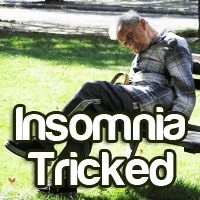
If your nights are spent counting sheep instead of getting sleep, a new treatment could teach you to rest easy. Insomniacs are unfamiliar with the sensation of falling asleep quickly, but a recent study suggests that inducing sleep deprivation can help them learn to do it.

Leon Lack, head of the Sleep Laboratory at Australia’s Flinders University, worked with colleagues to improve the condition of 79 insomniacs in one 25-hour session. At the beginning of each half-hour, the researchers let participants fall asleep–they’d been kept up the previous night, so they were exhausted–but woke them after only three minutes and then kept them up until the next half-hour began. The sleep-wake cycle was repeated for 25 hours, and then the volunteers were sent home.
Within a week, participants were falling asleep faster, and the benefits were still measurable six months later. “These people had significant insomnia for years, and in just one day they were able to greatly improve the quantity and quality of their sleep,” says Arthur Spielman, a sleep specialist at Weill Cornell Medical College.
Why was the therapy so effective? It trains insomniacs to associate the act of going to bed with the feeling of quickly nodding off. “Over the course of 25 hours, someone experiences that process dozens of times, helping them keep that association once they return home,” Lack explains.
There are no do-it-yourself versions of this therapy available now. But the Flinders sleep lab is already exploring the possibility of creating portable sleep monitors with alarm signals that could translate the 25-hour procedure to a home environment.
– Alice Oglethorpe, Psychology Today
(c) 2012 SUSSEX PUBLISHERS, INC. ALL RIGHTS RESERVED DISTRIBUTED BY TRIBUNE MEDIA SERVICES, INC.

